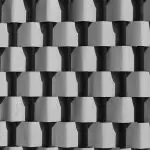Kava tea, derived from Plantagea spectabilis (Kava plant), is a centuries-old Pacific Island remedy gaining global recognition for its calming properties. Unlike synthetic aids, it offers a natural way to reduce anxiety without side effects or dependence. Ideal for post-exercise recovery, kava tea provides energy and promotes tranquility, helping athletes relax after intense training, especially in high-intensity sports. Its calming effect eases muscle tension and improves sleep, enhancing athletic performance over time. Kava's active compound, kavalactones, interact with GABA receptors, offering anxiolytic benefits comparable to post-exercise shakes but without artificial ingredients. However, it should be consumed responsibly, as it can cause drowsiness or dry mouth and may interact with medications. Pregnant and nursing women should avoid it due to insufficient research.
Kava tea, an ancient herbal remedy, is making waves as a natural way to promote relaxation and anxiety relief. This traditional beverage, derived from the root of the kava plant, offers more than just a calming effect; it’s a potential game-changer for post-exercise recovery. Unlike popular post-workout shakes, kava tea provides a unique blend of compounds that science suggests can reduce stress hormones and muscle tension. Discover how incorporating this herbal drink into your routine may enhance your post-workout experience and contribute to better anxiety management.
- Understanding Kava Tea: The Herbal Relaxant
- Benefits of Kava for Post-Exercise Recovery
- How Kava Works: Science Behind the Relief
- Incorporating Kava into Your Post-Workout Routine
- Potential Side Effects and Precautions
- Exploring Kava Tea's Role in Anxiety Management
Understanding Kava Tea: The Herbal Relaxant
Kava tea, derived from the root of the Plantagea spectabilis plant, has been a beloved herbal remedy for centuries, particularly in the Pacific Islands. Often referred to as “kava kava,” this traditional beverage is gaining popularity worldwide for its calming effects. Unlike many modern relaxation aids, kava tea offers a natural approach to soothing anxiety and promoting restfulness without the risk of dependence or side effects commonly associated with prescription medications.
For those seeking an alternative to post-exercise shakes that provide energy and recovery, kava tea presents an excellent option. Its unique composition of compounds, including kavalactones, contributes to a sense of tranquility without inducing drowsiness. Whether enjoyed hot or cold, kava tea can be a delightful addition to one’s wellness routine, offering a calming respite from the stresses of daily life.
Benefits of Kava for Post-Exercise Recovery
After an intense workout, proper recovery is essential for muscle repair and growth. Kava tea, a traditional herbal remedy, offers a unique advantage in this regard. Studies suggest that kava’s calming properties can aid in reducing post-exercise stress and anxiety, allowing athletes to relax more effectively. This effect is particularly beneficial for those who engage in high-intensity training or competitive sports, as it helps alleviate the mental strain associated with intense physical activity.
Incorporating kava tea into your post-workout routine may provide a natural alternative to traditional recovery drinks. Unlike many commercial post exercise shakes that focus primarily on nutrition, kava offers a holistic approach by promoting both muscular and mental recovery. Its gentle sedative effects can help ease muscle tension and foster better sleep, which is vital for optimal athletic performance over time.
How Kava Works: Science Behind the Relief
Kava tea, derived from the root of the Kava plant, has been used for centuries in traditional Pacific Island cultures as a natural remedy for stress and anxiety. The science behind its relief properties lies in the action of key compounds known as kavalactones. These compounds interact with specific receptors in the brain, similar to how certain medications work, to induce a sense of calm without drowsiness. Research suggests that kava can help reduce symptoms of anxiety and promote relaxation, making it a popular choice for those seeking natural alternatives to post-exercise shakes or other stress-relieving methods. The effects are attributed to its ability to inhibit overactivity in the brain’s nervous system, allowing individuals to unwind and find mental clarity.
Incorporating Kava into Your Post-Workout Routine
After an intense workout, unwinding and reducing stress is just as important as the physical activity itself. Incorporating kava tea into your post-exercise routine can be a game-changer for relaxation. Kava, a herb known for its calming properties, has been used for centuries to promote anxiety relief and enhance overall well-being.
Instead of reaching for sugary post-workout shakes, consider brewing a cup of kava tea. It’s an excellent alternative that offers both nutritional benefits and a natural way to unwind. Kava contains compounds that interact with the body’s receptors, creating a sense of tranquility without causing drowsiness. This makes it a perfect companion after a rigorous workout session, helping your body and mind recover while enjoying a warm, soothing drink.
Potential Side Effects and Precautions
While kava tea is generally considered safe for most adults, it’s important to be aware of potential side effects and precautions. Some people may experience mild side effects like drowsiness or dry mouth due to its relaxing properties. It’s also crucial to note that kava can interact with certain medications, so individuals taking prescription drugs should consult their healthcare provider before incorporating it into their routine. Additionally, pregnant or nursing women should avoid consuming kava tea, as there isn’t enough research on its effects in these specific populations.
When used responsibly, kava tea can be a delightful and natural way to support relaxation after physical activities, serving as an alternative to post-exercise shakes that may contain artificial ingredients. However, it’s always advisable to listen to your body and consume it in moderation.
Exploring Kava Tea's Role in Anxiety Management
Kava tea, derived from the root of the Kava plant, has gained attention as a natural remedy for managing anxiety and promoting relaxation. Often considered a post-exercise shake alternative for mind and body calming, it offers a gentle yet effective approach to soothing frayed nerves. The key active compounds in Kava tea, such as kavalactones, are believed to interact with the body’s GABA receptors, enhancing its calming effects.
This herbal drink has been used for centuries in Pacific Island cultures for its anxiolytic properties, making it a popular choice among those seeking natural solutions for stress and anxiety relief. Its potential benefits extend beyond relaxation, as studies suggest that Kava tea may help reduce symptoms of panic disorders and social anxiety without the side effects often associated with prescription medications. Exploring Kava tea as part of a holistic approach to well-being can offer individuals a natural way to navigate and manage their mental health, especially after physically demanding activities like exercise.
Kava tea, with its natural calming properties, offers a refreshing alternative to traditional post-exercise recovery methods. By incorporating this herbal drink into your routine, you can potentially reduce anxiety and promote relaxation without relying on synthetic substances. Whether as a standalone option or in combination with other recovery strategies, kava provides a holistic approach to well-being, especially after intense physical activity. Remember, while it may aid in managing stress and anxiety, consulting healthcare professionals is essential before making significant changes to your post-workout regimen, especially regarding any potential side effects.





